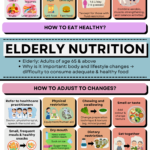当今速食时代,随着生活节奏加快,人们的饮食习惯也开始发生变化。人们的注意力开始从实际的饮食行为转移到了电视、电脑和智能手机上。
Eating has become a mindless act, often done quickly. This can be problematic, since it takes your brain up to 20 minutes to realize you’re full. If you eat too fast, the fullness signal may not arrive until you have already eaten too much. This is very common in binge eating.
饮食已经成为无意识的行为。人们常常快速的完成它。这可能会引起问题,因为您需要最多20分钟的时间才能意识到自己已经吃饱了。如果您吃得太快,饱腹感信号会在您吃的太多时才会到来。这情况通常在暴饮暴食中常见。
Mindful eating is a technique that helps you gain control over your eating habits. It has been shown to promote weight loss, reduce binge eating, and help you feel better. It’s also used to treat many conditions including eating disorders, depression, anxiety, and various food-related behaviours.
正念饮食被认为是一种可以帮助您控制饮食习惯的利器。它被证明可以促进减肥,缓解暴饮暴食并让您自我感觉更好。它也可用于治疗许多疾病,包括饮食失调、抑郁、焦虑和各种与食物有关的行为。
By eating mindfully, you restore your attention and slow down, making eating an intentional act instead of an automatic one. What’s more, by increasing your recognition of physical hunger and fullness cues, you can distinguish between emotional and true, physical hunger.
通过正念饮食,您可以恢复注意力,减慢速度,从而使饮食成为义务行为,而不是自动行为。此外,通过增强对身体饥饿和饱腹感的认知,您可以去认真体会真正的饥饿和触发性心理饥饿的区别。
You also increase your awareness of triggers that make you want to eat, even though you’re not necessarily hungry. By knowing your triggers, you can create a space between them and your response, giving you the time and freedom to choose how to react.
即使您不一定饿了,您也可以启动身体所有的感觉器官,视觉、触觉、听觉、嗅觉、味觉,去认真感受您正在品尝的食物。通过启动身体所有的感觉器官,您可以有时间和自由地去选择应对方式。
Lastly, we eat mindfully so we can fuel our body, not feed our emotion.
最后,正念的饮食是给我们的身体能量,而不是满足我们的情感。






